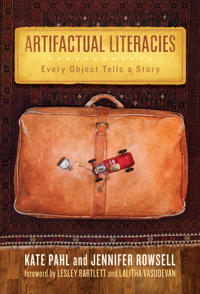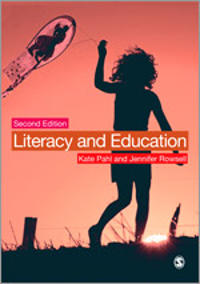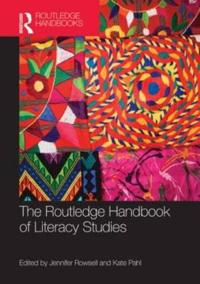Working with Multimodality (Pocket)
avJennifer Rowsell
ISBN: 9780415676205 - UTGIVEN: 2012-12-01In today's digital world, we have multiple modes of meaning-making: sounds, images, hypertexts. Yet, within literacy education, even 'new' literacies, we know relatively little about how to work with and produce modally complex texts. In Working with Multimodality, Jennifer Rowsell focuses on eight [...]
Resourcing Early Learners (Inbunden)
avSue Nichols, Jennifer Rowsell, Sophia Rainbird, Helen Nixon
ISBN: 9780415897594 - UTGIVEN: 2012-07-13In this ethnographic study, the authors examine parents' and children's experience with learning resources, not only in schools and libraries, but also in sites ranging from doctors' waiting rooms to supermarkets. They investigate the ways in which governments, corporations, and communities are tran[...]
Artifactual Literacies (Häftad)
avKate Pahl, Jennifer Rowsell
ISBN: 9780807751329 - UTGIVEN: 201009Literacy and Education (Inbunden)
avKate Pahl, Jennifer Rowsell, Kate Pahl
ISBN: 9781446201343 - UTGIVEN: 201205Six years on from the first edition of Literacy and Education, the ways we think about literacy have changed. The book continues to be an accessible guide to current theory on literacy with practical applications in the classroom, but has a new focus on the ecologies of literacy and on ways of resea[...]
Literacy and Education (Pocket)
avKate Pahl, Jennifer Rowsell, Kate Pahl
ISBN: 9781446201350 - UTGIVEN: 201205Six years on from the first edition of Literacy and Education, the ways we think about literacy have changed. The book continues to be an accessible guide to current theory on literacy with practical applications in the classroom, but has a new focus on the ecologies of literacy and on ways of resea[...]
The Routledge Handbook of Literacy Studies (Inbunden)
avJennifer (EDT) Rowsell, Kate (EDT) Pahl, Jennifer (EDT) Rowsell
ISBN: 9780415816243 - UTGIVEN: 2015-06The Routledge Handbook of Literacy Studies offers a comprehensive view of the field of language and literacy studies. With forty-three chapters reflecting new research from leading scholars in the field, the handbook pushes at the boundaries of existing fields and combines with related fields and di[...]








